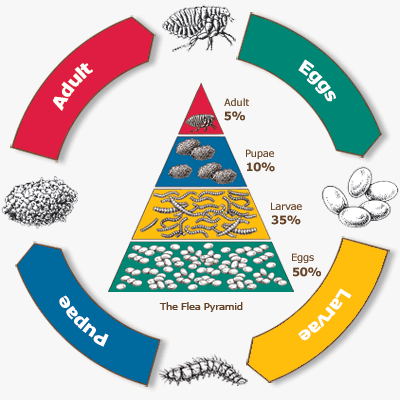Questionhow long did it take to go to collage how much you get paid do you like you job do you love pets
AnswerHey Tania!
I am not in colledge yet. But here is information on becoming a veterinarian.
What type of grades do you need to get into Vet School?
Let me say that it is statistically harder to get into a veterinary medicine college than it is to get into a human medical college because of the limited number of veterinary colleges(only 27 in the United States) compared to medical colleges. Therefore, your grades have to be very competitive.
Now this doesn't mean you have to be a straight A student. Veterinary colleges look at many factors in deciding who is a possible candidate including extra activities, experience in working with animals and more but a solid background in biology, science and math is usually desired. The good news is that the veterinary field has significantly diversified in the past decade so colleges also include individuals not from the "normal" statis quo.
How long does it take to become a Veterinarian?
It requires 4 years of college and an additional 4 years of veterinary medicine. Internship or residency credits are not required but are offered to achieve advanced qualification or specialty certification. The exception being that it was recently required that foreign graduates need additional veterinary medical residency credits. This is a debated subject.
Once you finish vet school can you practice being a veterinarian?
No, you first have to pass a demanding national veterinary medical board exam - similiar to the bar exam in law.
After that in order to practice in a state you need to pass a state board exam. Each state has their own requirements although some states do reciprocate. This means that if you pass the state board exam you would be eligible to practice in another state that accepts those scores.
There are pros and cons to this system. Many doctors feel that medical knowledge is not different from one state to the next, they already passed the veterinary medical board tests, so why would they have to limit themselves to a specific state. On the other side some feel that each state has specific regional questions they want addressed and they feel is important for veterinarians to be aware and knowledgable about them. On the whole, most states do not reciprocate so you must choose where to practice carefully or be willing to take a lot of tests.
Do you need to keep up with new techniques and information?
Yes, you must take a certain amount of continuing education courses throughout your life if you wish to continue practicing veterinary medicine. Which seminars you chose is up to the Veterinarian. This allows individuality along with keeping current on many new techniques, ideas and recent diseases. Also many veterinarians routinely subscribe to the journals of veterinary medicine to their overall knowledge of veterinary advances.
Do you have an oath to take?
Yes, The Veterinarian Oath is below:
Being admitted to the profession of veterinary medicine, I solemnly swear to use my scientific knowledge and skills for the benefit of society through the protection of animal health, the relief of animal suffering, the conservation of animal resources, the promotion of public health, and the advancement of medical knowledge.
I will practice my profession conscientiously, with dignity, and in keeping with the principles of veterinary medical ethics.
I accept as a lifelong obligation the continual improvement of my professional knowledge and competence.
Do you think vets are similar to doctors?
This is probably one of the most frustrating aspects of being a veterinarian. Many people believe that it is only a technical school type of degree or one similar to a Chiropractor's or Pharmacist's degree, which it is not. Although people are getting more knowledgeable as time progresses.
It is good to keep in mind that Veterinarians are Doctors but in a different field. In fact, the veterinarian curriculum is more diversified than human medicine because of the amount of different species and physiologies they have to study. Remember, many veterinarians especially general practitioners take on many responsibilities as surgeons, pharmacists, diagnosticians, radiologists, behaviorists, dentists, orthopedic surgeon,....and provide comfort to both patient and owner- all this has to be learned.
Can a dog veterinarian treat a dolphin or an elephant?
There are courses in veterinary school that encompass an overview of different animals. This encludes marine animals and wildlife, but most courses are specific to domestic land animals (both companion pets and farm animals). Birds and reptiles are also researched but to a smaller degree. However, aquatic medicine and wild animal medicine are specialties as you decide what field you want to practice. So even though you have the basic knowledge of their physiology if you are a general practitioner you don't have the experience, special equipment or specific medicines to treat them.
There is also good news if you do want to work with exotic animals. A few years ago there weren't many opportunities available but there now are a greater number of jobs available in those fields with the advent of zoological/marine parks and the increased awareness of environmental science.
What is the average salary?
The average starting salary is $50,000 a year but the ratio varies greatly because of the many different fields the profession covers.
Unfortunately, there has been a downward shift in salary especially in private practice. Whether it is a natural flux or a indication of a greater problem is yet to be seen.
The job opportunities for vets seem to be increasing in specialty fields like, aquaculture, microbiology, toxicology and environmental medicine. This is not an exclusive list but it indicates a trend in practice.
It is important to remember that if you go into a profession thinking of how much you are going to make then you probably will never be fulfilled. You must enter a profession because it is what is in your heart to do.
How many Veterinarians are there in the U.S.?
Today more than 58,000 veterinarians are professionally active in the United States, of that 75% are in private clinical practice but that number is decreasing. More and more are going into other fields like, teaching, research, government service, public health, military service, private industry, and other areas.
There are currently more male veterinarians but that number is bound to change since currently over 60% of those attending vet school today are women.
What does the job entail?
The job responsibilities vary based on the type of field you choose. Veterinary medicine offers jobs from company research, field study to private practice. Many veterinarians work in labs developing medicine. The veterinarian that is mostly identified with is the one in private practice. They must be a general physician / surgeon / diagnostician / pharmacist all in one with knowledge of a variety of different species. Many are also "on call" any time of day to answer or treat emergencies.
I am sure when I do become a vet I will love me job because I love pets and I would love to help them when they're sick or injured. I love animals and I can't wait to become a vet!
I hope this answers your question! Good luck!
Nicole

 Dogs claws are to long.
QuestionMy dogs claws are very long, they are starting
Dogs claws are to long.
QuestionMy dogs claws are very long, they are starting
 Cat breed, safe for family?
Question
The kitten
I found a kitten a couple da
Cat breed, safe for family?
Question
The kitten
I found a kitten a couple da
 Runny stool, vomiting,
Questionour Pom "Snoball"
QUESTION: Ou
Runny stool, vomiting,
Questionour Pom "Snoball"
QUESTION: Ou
 flaky skin and excessive shedding
QuestionQUESTION: Hello! Thank you for reading my quest
flaky skin and excessive shedding
QuestionQUESTION: Hello! Thank you for reading my quest
 Possible Deaf Puppy.
Question
Paloma (white dove)
I have a 9 week old
Possible Deaf Puppy.
Question
Paloma (white dove)
I have a 9 week old